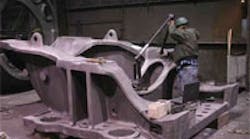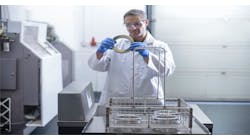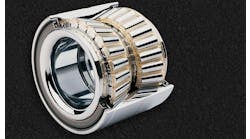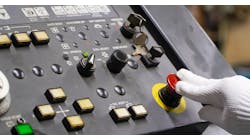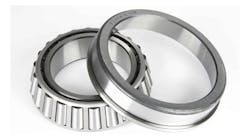In addition to a lean program, Philips Respironics initiated a management performance scorecard it calls QCDSM, or quality, cost, delivery, safety and morale.
Despite one of the worst recessions in decades, the Commonwealth of Pennsylvania continues to demonstrate some economic success, and advanced manufacturing is playing a critical role in economic prosperity.
To address the challenges, manufacturers are redefining their core businesses, developing new technologies, and adopting production process innovations. This is especially evident in the western portion of the state where companies such as Bayer MaterialScience LLC, Philips Respironics, Medrad Inc., Hodge Foundry, and Lake Erie Biofuels have adapted well to the swings of the global marketplace. These companies continue to demonstrate that flexibility and innovation are essential to surviving and thriving in an ever-changing economy.
One innovation is Aura Color Infusion technology developed at Bayer MaterialScience in Pittsburgh, and a division of the Bayer Corp. The division serves the automotive, construction, leisure, insulation, coatings and raw material markets. Its products include polyurethanes, polycarbonates, thermoplastic polyurethanes and coatings, adhesives and sealants.
Aura Color Infusion technology is one of Bayer MaterialScience’s most recent developments and one that met a specific market request. Customers wanted the ability to customize their products through color, and the Aura process allows them to color parts after they have already been molded. For example, polycarbonate safety glasses can be colored/tinted after being made.
The process provides customers just-in-time colorization and customization. Plus, it eliminates the need to stock a lot of different color pellets, as is the case when parts are molded in different colors.
During the Aura process, parts get dunked into a vat containing the Aura solution, are slowly removed, and pick up the color. The color actually penetrates into the part about 0.010-in. deep, or deeper with other flexible-type polymers. The process also works on metals, basically coating the part with a thin layer similar to those placed on chromed parts. Only the coating is colored.
From a manufacturing standpoint, medical device maker Philips Respironics in Murrysville, Pa., has re-invented itself several times. As part of those re-inventions, the plant incorporated lean principles, follows the principles of demand-flow technology (an Americanized version of the Toyota production system), and is opening a new manufacturing facility to support the company’s high-volume production.
Prior to going lean, the manufacturing plant’s total product cycle time was about 10 days, and the facility was at full capacity. Now, that same plant is putting out 20 times the volume, and total product cycle time dropped to 25 minutes.
Taking its lean program further Philips Respironics initiated a management performance scorecard it calls QCDSM, or quality, cost, delivery, safety and morale. Everything done at the plant ties back to QCDSM.
On a daily basis on the plant floor, plant personnel measure assembly and process areas of quality, workforce and process efficiency in terms of cost, back order performance, safety, and morale. To measure morale, the plant uses “quick and easy Kaizen,” which is selfdirected continuous improvement.
If an employee has an improvement idea, he or she has to implement it to get credit. About 10 ideas are implemented per day, and continuous improvement has become a cultural staple at the plant.
Only about 2 percent of Philips Respironics’ direct cost is labor, so to move a manufacturing facility offshore, for instance, would save only 2 percent and add more in shipping costs. This is why the company is building a new 172,000-sq-ft high-volume production plant in Pennsylvania.
The company has focused on perfecting and optimizing the processes and operations for the new plant, which then will be used as a model for future facilities. The current 125,000-sq-ft manufacturing facility will become a low-volume highcomplexity production area.
Another Western Pennsylvania medical device manufacturer benefiting from lean is Medrad Inc.’s Heilman Center manufacturing plant in Pittsburgh. Lean manufacturing has allowed the center to weather current economic conditions and actually to profit from the manufacture of a high mix of lowvolume products.
Since incorporating lean, the Heilman Center has not laid off employees and has provided them with tremendous opportunities. Employees are able to migrate from one area of the company to another, making for a more flexible workforce. In addition, employees self-manage to improve operations, and there is an incentive program in place.
When incorporating lean, the plant focused on process, design, and people. The key to success, however, was sustaining what was implemented and the processes themselves. The company accomplishes this through supportive, peer-to-peer auditing.
Also, the center made a cultural change and “home grew” its own method for doing so. It’s called the MedFlow project, and it is pivotal in making the production of the company’s high mix of low-volume products profitable.
The project involved establishing metrics for tracking inventory and production on a linear basis, and the incorporation of Kaizen, training, wireless bar coding, and so on. Most notably, the project led to the adaptation of multi-product cells to eliminate waste.
These U-shaped cells are built back to front – all raw materials on the outside, and all work in process on the inside. Four or five of these production cells fit into the same area that just one of the company’s former cells had occupied. Medrad not only gets more production cells in the same amount of space, but also increases the operator workspace areas of each cell as compared with the former cells.
Any production with a cost that can’t be justified by dedicating floorspace is put into a multi-product cell. As soon as a cell is at 100-percent capacity, the decision is made to split that part of production off to another area. The Heilman Center plant doesn’t dedicate floorspace unless it can make money from doing so.
Hodge Foundry, in Greenville, is another Western Pennsylvania manufacturing company that has demonstrated flexibility when it comes to adapting to changing markets. To stabilize business and continue a strong growth path, the job shop foundry made the necessary investments to support its entrance into the wind turbine industry.
The foundry specializes in large gray and ductile iron castings weighing from 3,000 lb to 200,000 lb. While this capacity was a perfect fit for large wind-turbine parts, Hodge still had to make some upgrades to its facilities and personnel and add some supporting technologies.
In the facility, Hodge added a 75-ton handling crane and another one for hot metal pouring. It brought in more engineers to cultivate into process engineers and, most importantly, added personnel for quality control. It now has six quality technicians on staff.
As a technology upgrade, Hodge installed Magmasoft, a casting process modeling software. With it, the foundry can simulate the flow and solidification of metal castings, a capability that proved especially useful in achieving the stringent casting requirements of wind-turbine parts.
Hodge inspects castings with an articulated arm CMM, in addition to ultrasound. The shop also added a digital camera-based CMM to expand its casting measurement/ inspection envelope.
To expand its markets, Lake Erie Biofuels, a Western Pennsylvania supplier of the alternative fueladditive Methyl Ester, commonly known as biodiesel, is actively exploring the possible use of its product in the manufacture of sealing products and insulation foam, such as that used in the automobile industry.
The company’s state-of-the-art facility started in 2007 and produces over 136,000 gallons of biodiesel per day. Its product is made from vegetable oil and animal fats and greases, and is used as home heating fuel and for powering diesel engines. At the pump, the product is typically offered as a blend and it’s said to be helping Pennsylvania reduce its dependence on foreign oil.
On the academic side, Penn State University’s Behrend College offers its Plastics Technology Center to manufacturers in Pennsylvania and other parts of the country as a full-service resource for plastics-related issues. It provides manufacturing and engineering assistance, as well as help with new product design and development and process enhancements to increase productivity.
The Penn State Behrend College is not a manufacturing facility, but it helps keep Pennsylvania’s pool of educated and skilled labor filled. At the college’s Research and Economic Development Center, where the plastics lab is located, students are offered first-ever college programs that combine engineering classes with business classes. In addition, the center often works with outside industries to help solve real-world problems.
Students in the college’s plastics program learn the conversion process of injection molding, how to design a part, and to develop the tooling for it. They work on the latest injection and extruder/extrusion blow molding and injection blow molding machines.
